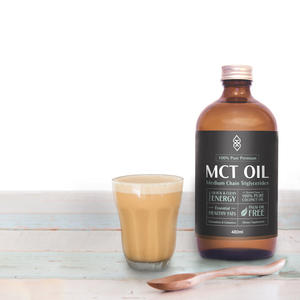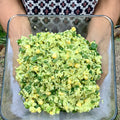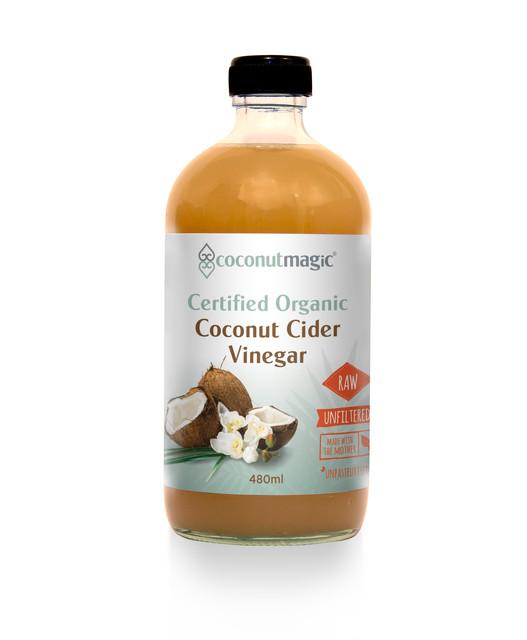
This Saturday, August 19th is International Orangutan Day. Orangutans have been facing extinction due to deforestation in the name of the palm oil industry for decades. One way to help raise awareness on the issue and aid in protecting all other endangered species is by choosing coconut oil for cooking and when purchasing packaged food, cosmetics and cleaning products.
What is Palm Oil?
Palm oil is an edible vegetable oil that is extracted from the flesh of the palm fruit. Oil palm plantations are highly productive and are able to yield the highest oil per tree ratio than any other edible oil in the world. A single palm tree can produce ongoing fruit for up to 30 years.
It is estimated that around 50% of all consumer products are made with palm oil. It is the most widely consumed vegetable oil on the planet and half of packaged products contain palm oil including food, cosmetics, cleaning products, hair care, soaps and personal care items. It is truly hard to identify, as there are over 200 different names for palm oil derived ingredients. Palm oil is the cheapest and most versatile oil on the market, which makes it such a gold mine for companies in the food industry. Palm oil increases the shelf life of packages products and is used to manufacture emulsifiers and surfactants. It also has a high smoke point, which makes it perfect for quick frying products such as instant noodles. Palm oil also used to produce biofuel and to feed livestock.

Image Source: Palm Oil Investigations
Consequences of the Palm Oil Industry
Around 90% of all palm oil production is located on a few islands in Malaysia and Indonesia, where has been preserved some of the greatest biodiversity on the planet. However, large scale rainforest clearing for oil palm plantations has contributed to several major environmental and social issues including habitat loss for local species, increased air, water and soil pollution as well as impaired indigenous culture. It is also estimated that deforestation contributes to up to 20% of global warming.
Certainly the biggest issue surrounding unsustainable palm oil production is the extensive deforestation, which results in habitat loss for local animals such as elephants, Asian rhinos, tigers and the iconic orangutans. On top of habitat loss, large-scale deforestation also contributes to soil erosion and human-wildlife conflicts due to restricted land area. Incredibly large areas of some of the greatest biodiverse ecosystems in the world are being cleared every day to make room for oil palm plantations, driven by multinationals and consumer demand.
Impact of Palm Oil on Orangutans
An average of 50 orangutans are killed every week because of deforestation. The rainforest is cleared by heavy machinery or fire, and orangutans are left without a home and source of food. They are also considered a pest by most players in the industry, as they wander around plantations in search for food, which makes them extremely vulnerable.

Image Source: Palm Oil Investigations
How we can help?
A simple way to help reduce your contribution to the negative impacts of the palm oil industry is to make simple lifestyle changes, choosing palm free items when purchasing packaged food, cosmetics, cleaning products and personal care items.
Coconut oil is a great alternative to use as a cooking oil due to its high smoke point and amazing nutritional qualities.
You can also use coconut oil to make your own baked goodies, cosmetics and cleaning products, preventing the use of packaged products containing palm oil. If you feel creative, here is a list of 25 ways to use coconut oil at home.
The Orangutan Project
As a business, Coconut Magic, is dedicated to animal wellness and encourages a vegan and palm oil free lifestyle. To support World Orangutang Day this Saturday August 19th, we will donate 20% of our total revenue from online sales to Australian not-for-profit oragnisation The Orangutan Project. Stock up on coconut for a good cause this Saturday!
The Orangutan Project was established in 1998 by founder and world-renowned orangutan expert, Leif Cocks, as a result of his 25+ year career working with orangutans.
The Orangutan Project is a dynamic, fast-growing and successful not-for-profit organisation that supports a wide range of critical projects that address the holistic problem facing remaining fragmented orangutan populations - including fighting deforestation and habitat loss at the highest level.
The projects funded by The Orangutan Project not only include direct orangutan conservation, such as orangutan rescue, rehabilitation and release programs, but also forest habitat protection and regeneration, education, research and local community partnerships.
Find out more about The Orangutan Project
Sources:
Palm Oil Investigation
WWF Australia
Say No to Palm Oil
AUTHOR: LIZ LEMIEUX
Liz grew up in the beautiful nordic city of Quebec in Canada. A qualified yoga instructor and a business graduate, Liz is passionate about health, sustainability and social entrepreneurship. Besides yoga, she enjoys surfing, outdoors, cooking, and planning her next travel adventure. Liz manages marketing and social media at Coconut Magic. You can learn more about Liz at lizlemi.












